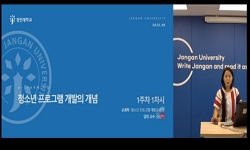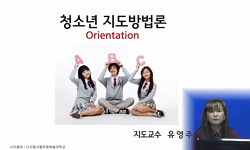The purpose of this study is to broaden the theoretical debates on youth volunteering by examining the terrains of the debates on the nature of youth volunteering that revolves around the discourse of 'service-learning' and revealing differences in pe...
http://chineseinput.net/에서 pinyin(병음)방식으로 중국어를 변환할 수 있습니다.
변환된 중국어를 복사하여 사용하시면 됩니다.
- 中文 을 입력하시려면 zhongwen을 입력하시고 space를누르시면됩니다.
- 北京 을 입력하시려면 beijing을 입력하시고 space를 누르시면 됩니다.
https://www.riss.kr/link?id=A108849418
-
저자
김미란 (숙명여자대학교)

- 발행기관
- 학술지명
- 권호사항
-
발행연도
2023
-
작성언어
Korean
-
주제어
자원봉사 ; 봉사학습 ; 비판적 봉사학습 ; 적극적 시민성 ; 청소년 ; volunteerism ; service learning ; critical service learning ; active citizenship ; youth
-
등재정보
KCI등재
-
자료형태
학술저널
-
수록면
63-75(13쪽)
- DOI식별코드
- 제공처
-
0
상세조회 -
0
다운로드
부가정보
다국어 초록 (Multilingual Abstract)
The purpose of this study is to broaden the theoretical debates on youth volunteering by examining the terrains of the debates on the nature of youth volunteering that revolves around the discourse of 'service-learning' and revealing differences in perspectives on the meaning of service-learning. Already, interest of many researchers in volunteering has moved beyond the practical and pragmatic and has been theorized around the concept of 'service learning'. Service-learning has emerged from the institutionalizations of youth volunteering and has driven the enactment of volunteer legislations. Meanwhile, critical service-learning theories have been raised from a different perspective from policy discourses and mainstream service-learning theories. Both of the existing service-learning theory, which sees youth learning citizenship as a responsibility and duty for social integration through volunteering, and the critical service-learning theory, which recognizes the structural inequalities of neoliberalism and seeks critical citizenship for social justice, require an understanding of the political, economic, and social context surrounding youth volunteering. It is hoped that through the dialogues between the two perspectives, youth service learning for democratic citizenship will be explored.
동일학술지(권/호) 다른 논문
-
미용특성화고등학교 학생들의 진로준비행동에 대한 잠재집단 분류 및 특성탐색
- 한국청소년시설환경학회
- 조명애
- 2023
- KCI등재
-
국가청소년정책과 국립청소년수련원의 상호작용 - 국립평창청소년수련원을 중심으로 -
- 한국청소년시설환경학회
- 김영희
- 2023
- KCI등재
-
대학생의 코로나19 전후 대학생활 적응, 자살 생각및 상담 실태에 관한 비교 연구
- 한국청소년시설환경학회
- 김정아
- 2023
- KCI등재
-
대학생의 직업가치 요인과 진로계획성 간의 관계에서 자기효능감과 진로미결정의 이중매개 효과
- 한국청소년시설환경학회
- 천지은
- 2023
- KCI등재





 KCI
KCI eArticle
eArticle






